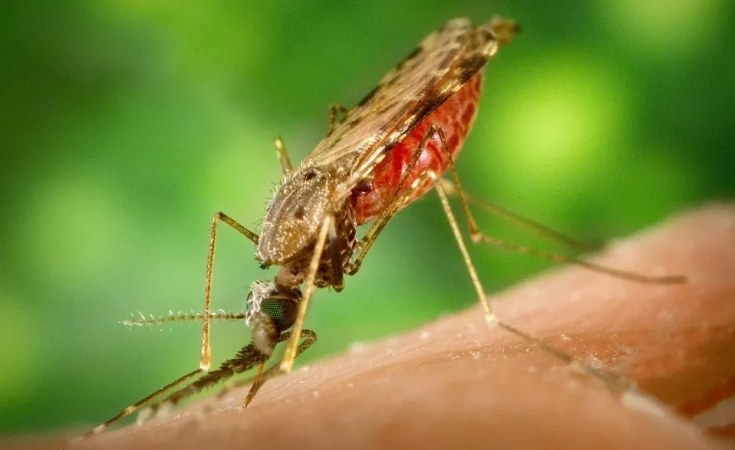The usually cold Northern province of Rwanda faces an alarming risk of increased malaria cases as temperatures rise, warns Faustin Munyazikwiye, Deputy Director General of the Rwanda Environment Management Authority (REMA).
Climate change has led to a temperature increase of 1.4°C in Rwanda since 1971, according to trend analysis, with Rwanda's average temperature exceeding the global average (1.09°C) as indicated by the UN-Intergovernmental Panel on Climate Change (IPCC) report.
Additionally, the number of rainy days in Rwanda has declined by 35 to 45 days per year due to climate change.
Warming temperatures are expanding the risk area for malaria, pushing the disease farther uphill in previously unaffected regions, Munyazikwiye said.
For instance, the temperature rise in Rwanda, even in the traditionally coldest region of Northern province, has led to the recording of malaria cases," he said. Stagnant water resulting from flooding could also contribute to increased malaria cases, providing breeding grounds for mosquitoes, he added.
"We are currently witnessing horrific wildfires in Europe and North America, and tragically, we saw devastating floods and landslides here in Rwanda that claimed innocent lives. Climate change not only serves as a catalyst for these natural disasters but is also responsible for the emergence of mosquitoes, tsetse flies, and other disease vectors in regions where they were previously absent," Scientist Sam Yala, a scientist at the African Institute for Mathematical Sciences (AIMS) said.
To gather essential data on climate change's impact on health, including malaria cases in cold regions, a new three-year project worth $1 million was launched on July 28, 2023. The initiative, named "Standards for Official Statistics on Climate-Health Interactions" in Rwanda, will conduct research to establish statistical relationships between climate change and injury, mortality from extreme weather events (such as flooding, wildfires, droughts, storms), water-borne diseases, respiratory illnesses, zoonoses, air pollution, and potentially non-communicable diseases in the future.
Policy makers are expected to utilize these statistics to implement measures to cope with the effects. The project brings together government institutions, including the Rwanda Environment Management Authority (REMA) and the Rwanda Biomedical Centre (RBC), in collaboration with The United Kingdom Office of National Statistics (UK-ONS) and the African Institute for Mathematical Sciences (AIMS).
Prof Wilfred Ndifon, the Chief Scientific Officer at AIMS, highlights the importance of this initiative in creating a statistical analysis framework and unified standards for reporting climate change's effects on health at both the national and local levels in Rwanda. "The knowledge gained will facilitate informed decision-making and evidence-based policies, enhancing the well-being of our communities in the face of climate challenges," he said.
Scientist Sam Yala emphasizes that the project will help the Rwandan government garner support from development partners for well-evidenced issues and encourage the private sector to find innovative solutions to these complex challenges. Currently, there is a lack of consensus and a global framework for climate-health risk impacts on official statistics and analysis, he added.


